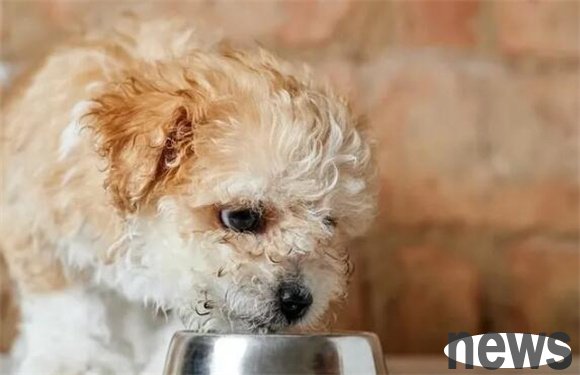It is a good practice to stop feeding dogs after dinner time. This can avoid excessively active digestive processes at night, helping the dog maintain a quiet state at night, and will not affect the rest of the family due to diet. Generally speaking, it is more appropriate to schedule your dog's dinner before 7 pm.
In addition, not feeding dogs at night can also help prevent indigestion or gastrointestinal problems, because putting dogs on an empty stomach for a longer period of time at night can give their gastrointestinal system sufficient rest and recovery. At the same time, regular feeding can also help establish good working and rest habits and food rules of the dog, and help maintain their health. Therefore, a reasonable arrangement of feeding time, especially evening feeding time, is beneficial to the health of the dog and family harmony.

In addition, not feeding dogs at night can also prevent the dog from urinating or defecating at night, which helps reduce cleaning work and maintain hygiene at home. In addition, not feeding at night can also help control the dog's weight, because the intake of less calories at night can help prevent obesity problems caused by eating too much at night. In general, not feeding dogs at night is to take care of the dog's physical health and the tidy family environment, and is a feeding method that a responsible owner should consider.
Of course, not feeding dogs at night can also help maintain a healthy life rhythm of the dog. The dog's digestive system is usually at a low level of activity at night, so not feeding at night can help avoid indigestion or other digestive problems. In addition, not feeding dogs at night can also give dogs better rest at night, which helps maintain their physiological and psychological health.
The time when you do not feed your dog at night can be adjusted according to the family's work and rest time and dog's habits. Generally speaking, the dog should be given enough time to digest food after dinner and avoid feeding before going to bed to avoid affecting the dog's sleep quality and digestive function. If the family dinner is late, consider feeding the dog in advance, or waiting for a while after dinner before feeding the dog.
In addition, some dogs may need to be fed at night due to living habits or special circumstances, such as younger puppies, sick or recovering dogs. In this case, you can feed appropriately at night according to the actual needs of the dog and the advice of the veterinarian, but you should still pay attention to avoid getting too close to the feeding time before going to bed, so as not to affect the health and comfort of the dog.
If the family is late, consider giving your dog a supper in advance to ensure that there is enough time to digest. Avoid getting too close to feeding time before bed, which can lead to indigestion or nighttime excretion problems. For sick, young or in need of special care, feeding time may need to be adjusted according to the veterinary advice. The following points can also be considered for the feeding time of dogs:
Depending on the age and health of the dog: puppies and older dogs may need to eat more frequently, while adult dogs may eat less frequently but with larger portions. When dogs have special health problems, such as gastrointestinal problems or diabetes, they may require more precise timing.
Observe the dog's hunger: Some dogs may feel hungry at night. At this time, you can pre-dinner dinner time appropriately to avoid affecting their rest.
Avoid feeding too late: Feeding too late before bedtime may cause indigestion or nighttime excretion problems, so try to avoid this.
Maintain regularity: Try to maintain regularity of daily feeding time, which will help dogs develop good eating habits and living rules.
Moderate snacks: If your dog is a little hungry after dinner or needs an additional reward, consider giving a moderate amount of healthy snacks, but do not overdo it to avoid affecting your normal diet.

Generally speaking, the time when not feeding dogs at night should be avoided to affect family rest and family routines. At the same time, the dog's health and dietary needs should be considered, and the feeding time and regularity should be maintained.
Generally speaking, not feeding dogs at night is to take care of the dog's physical health, maintain the tidy family environment, and maintain the dog's healthy life rhythm. Of course, when formulating a feeding plan, the dog's age, weight, health status and activity level should also be taken into account to ensure that it receives sufficient nutrition and energy.